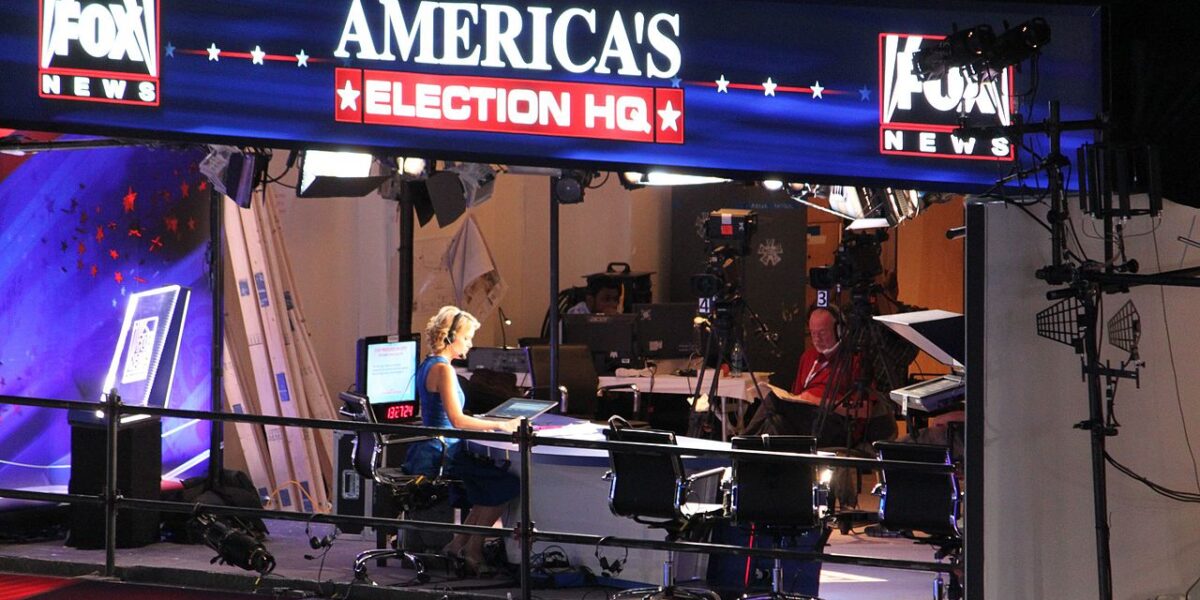On Monday, NBC’s nightly news spent the first six minutes (of 22 total, in a 30-minute slot minus ads) on the firing of cable news bigmouths, Tucker Carlson (Fox) and Don Lemon (CNN). After that, it went briefly to civil war in Sudan, with total focus on extricating U.S. citizens.
I don’t consider those dismissals newsworthy. The big blabbers are titans at their outlets, till they’re not. Bill O’Reilly was a god on Fox, then overnight was no more. Glenn Beck left even less of a trace. The only news here is that these news channels have almost no news, just blather. That’s why the big names are so easily ditched. Shallow, replaceable opinion is the real fake news.
They should be called baseless opinion channels. It’s ironic how aware of this the Fox grandees are. Sean Hannity texted, “News depart that breaks no news ever.” Is it ironic that I write this in an opinion slot? Is Mrs. Maisel Jewish?
Proliferating opinion for too long tends to make you stupid, or stupider. Don Lemon was shifted to a morning slot with two journalists who still recall their roots. He called presidential candidate Nikki Haley “past her prime.” They demurred. He retorted, “I’m just saying what the facts are — Google it.” He could’ve at least cited Wikipedia, which has some intellectual cred. He was closer to Hey Siri!
Atlanta (Donald Glover’s series) nailed him years ago. Earn tells Paper Boi he needs “somebody who’s about the money, the opportunity, who can play both sides if needed.” Darius twigs, “Oh, like Don Lemon.”
What about our full-time “news channels” from CBC and CTV? They’re weighed down with “panels” who are expected to opine on every topic that arises. During COVID, they jabbered about vaccine mandates. It’s way cheaper than actual reporting. I yearn for a panelist who says, I don’t know anything about that, I’ll sit this out. Would they get invited back? That’d be the test.
What’s the solution? More actual reporting. If there were, viewers would sense it and say, “Hey, he has no reasons for that. He’s just running his mouth.”
Ed Sheeran mediates between eras
Ed Sheeran, who’s being sued for plagiarizing a Marvin Gaye pop song of 40 years before his own, is turning out an elegant interpreter of history. “Most pop songs can fit over most pop songs,” he testified. He doesn’t exactly deny plagiarism. More like: that used to be known as plagiarism. What’s intervened? The easy plenitude on the internet.
The legal context for plagiarism, beyond creative pilfering, or morally abhorrent theft, arose along with capitalism and the printing press. As long as humans were immersed in that era, it seemed like a state of nature. Now that it’s in the process of being superceded or fundamentally transformed, it starts feeling like what’s been called a 400-year Gutenberg parenthesis.
I mean, is there any such thing as originality, or creating something (if you’re not God)? Where would you come up with material, if not from a source that already exists. You can reshape stuff but if you know the writer of a novel, you can likely spot the root of almost every character and incident.
Intellectual property was a form of private property, emerging with possessive individualism (as in C.B. Macpherson’s works) during capitalism’s earlier incarnations. The first real copyright law, the Statute of Anne, came into force in 1710.
Poor George Harrison of the Beatles got sued over 1970s “My Sweet Lord,” because of “He’s so fine,” eight years before. The judge found him guilty though “subconsciously,” which may’ve been meant as kind but left Harrison feeling “paranoid” about songwriting. Of course it upset him, he was in the grip of a historical era, nearing its end but without other versions of reality in sight.
Ed Sheeran is clearly calmer, 50 years on. Something’s happening here, and he might even know what it is.
This column originally appeared in the Toronto Star.



